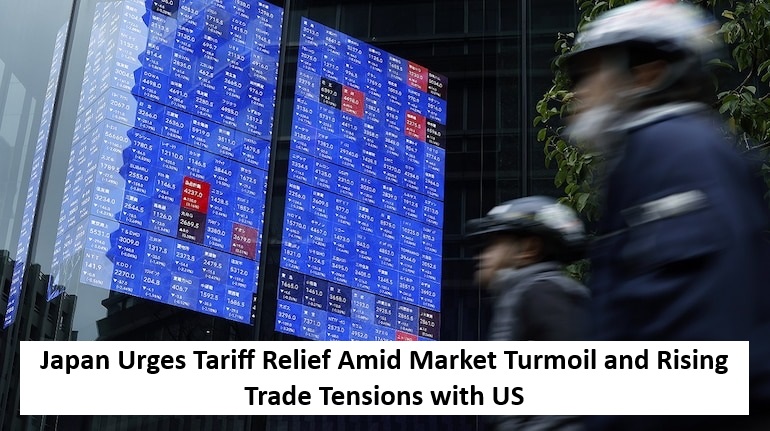
Japan has initiated efforts to negotiate directly with the United States after new US tariffs triggered financial turmoil. Prime Minister Shigeru Ishiba announced he would request a call with President Donald Trump to urge the reversal of 24% import tariffs on Japanese goods.
Speaking in Parliament on Monday, Ishiba emphasized that Japan's trade practices are fair and said it is vital to correct any misconceptions promptly.
Tokyo Scrambles to Respond as Stocks Dive
The Japanese government was caught off guard by the US tariff announcement, set to take effect from April 9. Since then, major Japanese stock indexes have taken a sharp hit:
Topix: Down by as much as 9.6%, reaching August 2023 levels.
Nikkei: Fell to its lowest point since October 2023.
Trading in stock futures was temporarily halted due to a circuit breaker being triggered.
Investor Sentiment Shaken by Escalating Trade War
Market analysts believe that investor fears are being amplified by Beijing’s retaliatory measures and the US administration’s firm stance. Yusuke Sakai, a senior trader at T&D Asset Management, said the current market reaction goes beyond a “Trump shock,” with concerns growing over a potential global recession.
Policy and Diplomatic Responses in the Works
Ishiba stated he may soon visit the US for direct discussions.
Finance Minister Katsunobu Kato confirmed the administration is closely monitoring financial markets and investor sentiment.
Weekend reports suggest Japan may include LNG, cars, agriculture, and national security in negotiations.
So far, Tokyo has not outlined any retaliatory trade measures, preferring a diplomatic resolution.
Japan’s Economic Role in the US
During a February summit, Ishiba pledged to increase Japan’s investments in the US to $1 trillion and expand purchases of US liquefied natural gas. Japanese automakers continue to build factories and create jobs in the US, which officials cite to reinforce Japan’s fair trade posture.
Currency and Bond Markets Reflect Safe-Haven Demand
Japanese Yen: Gained over 1% against the dollar, reaching its strongest level since December. It has risen 2.5% in April so far.
Government Bonds: Japanese 10-year bond futures surged to their highest since December, with last week's gains being the largest in nearly 40 years.
Shoji Hirakawa, chief strategist at Tokai Tokyo Intelligence Lab, said the worsening trade environment could directly hurt the profits of Japanese firms operating in the US.
Read More: The Verdict is In What the 8.25% EPFO Interest Rate Means for Your Retirement Savings

 Share
Share



